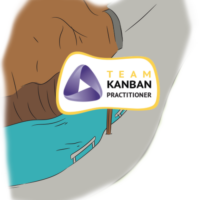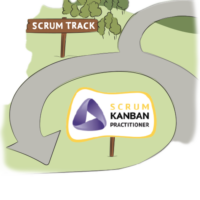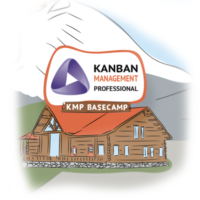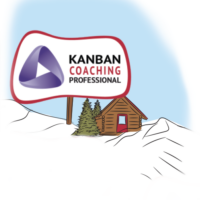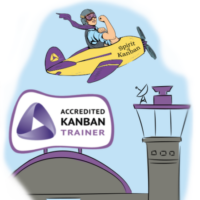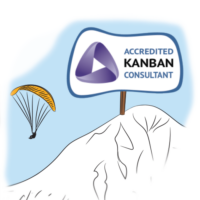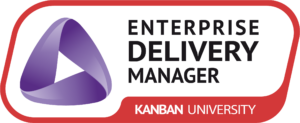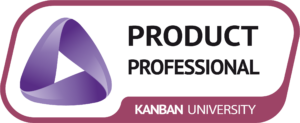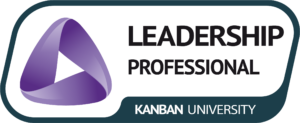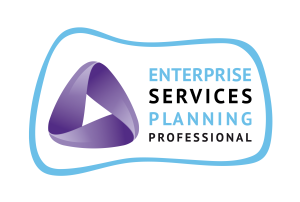Kanban University Development Path
Kanban is the truly effective path to agility.
Kanban’s practices, principles, and the application of evolutionary change management are just the skills that today’s professionals need!
Kanban Foundation Credentials
Team Kanban Practitioner (TKP)
The Kanban Method is a knowledge work management method for teams and organizations that want a humane way of improving their products and services. Learn how to understand, visualize, and measure systems of work to continually improve and consistently deliver effective results. The Team Kanban Practitioner course is the best first step for getting the work organized by teams and leaders like you. By understanding the core concepts of the Kanban Method and teaching contributors to be “good Kanban citizens,” you will improve visibility, communication, and collaboration within your team.
Scrum Kanban Practitioner (SKP)
Improve your Scrum by adding the practices and evolutionary change approach from the Kanban Method. The Scrum Better with Kanban course can help you improve your Scrum through the introduction of proven Kanban practices, principles, and application of evolutionary change management. This course captures the lessons learned from Scrum Teams that successfully evolved their way of working through evolutionary change using the Kanban Method. Our hands-on training will ensure that you walk away with a proven approach to introducing changes that will deliver results for your team and organization.
Kanban Management Professional (KMP)
This credential is granted upon the completion of two classes. The Kanban System Design course, which teaches the basics of Kanban, flow, and how to design a Kanban system.
You then have two KMP options to fit your needs, KMP for Service Delivery or KMP for Product Delivery. For service delivery, the Kanban Systems Improvement course will teach you how to evolve, improve, and scale a Kanban system. For product delivery, the Kanban for Design and Innovation course teaches you how to establish an upstream Kanban system.
Advanced Kanban Credentials
Kanban Coaching Professional (KCP)
KCPs are clearly recognized Kanban experts and are trusted to hold a specific set of effective coaching tools that lead to better business outcomes. KCP candidates complete the Kanban Maturity Model and Kanban Coaching courses, hold the KMP Credential, and must successfully pass the KCP exam. Successfully passing the KCP exam demonstrates not only full and comprehensive mastery of the KMM and KC curriculum but also the skill to lead and evolve an organization to higher levels of maturity.
Accredited Kanban Trainer (AKT)
This high level of accreditation is granted based on a thorough review of each candidate. Candidates must be Kanban Management Professionals, take the Kanban Train the Trainer course, during which they must demonstrate their ability to effectively teach the materials for the TKP, KSD, and KSI courses, and prove their real world Kanban expereince through a case study presentation. AKTs are accredited by Kanban University to effectively and knowledgably deliver the Kanban University certified course curriculum.
Accredited Kanban Consultant (AKC)
This high level of accreditation is granted upon on a thorough review of each candidate. Candidates must complete the Change Leadership Masterclass in addition to meeting all the requirements of a Kanban Coaching Professional. They must write a coaching journey essay and pass a live review with peer AKCs. AKCs are recognized and endorsed by Kanban University as highly qualified to successfully coach change initiatives for improved service delivery using the Kanban approach.
Specialized Kanban Credentials
Enterprise Delivery Manager Credential
The Enterprise Scale Kanban course teaches you how to create executive dashboard reporting for multiple business units, allowing you to roll up results to workforce of up to tens of thousands of people. Take service-oriented thinking from the Kanban Method and KMP training to the next level by learning the practices needed for effective dependency management.
An Enterprise Delivery Managers understands what is necessary to take an organization to maturity level 4 and to implement a network of interconnected dependent Kanban systems that might support an entire business unit of 300 to 1200 people.
Product Professional Credential
A Product Professional is an expert in managing upstream, discovery, and innovation activities leveraging the power of Kanban, Enterprise Services Planning, and the Fit-for-Purpose Framework to manage risk, select the most valuable work, and schedule it at the optimal time.
Product Professional’s maximize flow by feeding delivery Kanban systems the best possible mix of work, by segmenting markets, building empathy, and optimizing features and functionality to manage the complex fitness landscape of their market and product domain. Enabling improved customer satisfaction, and better economic outcomes.
Leadership Professional Credential
The Leadership Professional credential is designed for those holding operational management and leadership positions in companies pursuing a business agility transformation. Learn to integrate leadership development into an overall organizational improvement and development plan.
These courses introduce the leadership maturity model, which maps seven levels of leadership quality and energy. It maps character traits and behavior and provides you with a roadmap for leadership development. Learn to drive evolutionary change, how your organization can build trust, and build organizational resilience (and maturity).
Customer Experience Professional Credential (CXP)
Customer Experience Professionals hold significant insights into how to optimize the effectiveness of businesses, to produce fit-for-purpose products and services that delight your customers, making them loyal to your brand and increasing your share, revenues, and margins.
Enterprise Services Planning (ESP)
Aligning strategy with our market and capability; Fitness Criteria; Modern KPIs; Anti-Fragility. Delivery of strategic goals depends on fast coordination across your enterprise. Combining visibility, focus, and data-driven decisions, ESP is a complete management system that takes business agility to another level.
Legal Kanban Practitioner (LKP)
Applying Kanban in legal teams and organizations offers a new way to design, manage, and deliver legal services focusing on understanding and satisfying the business and client needs, while enabling a human approach to change that minimizes or avoids resistance, to deliver modern, sustainable, and competitive services.
Interested in staying up to date on the latest Kanban News and Resources? Sign up for our mailing list today!



